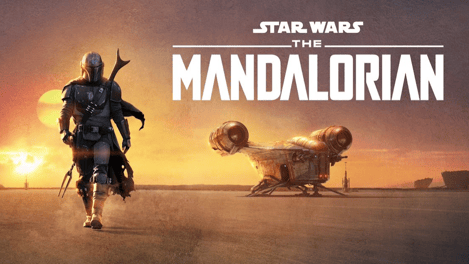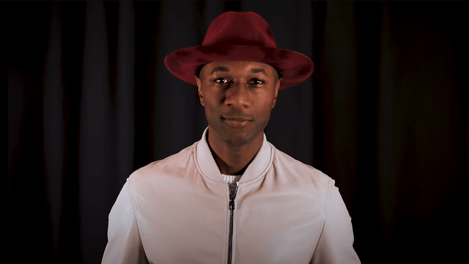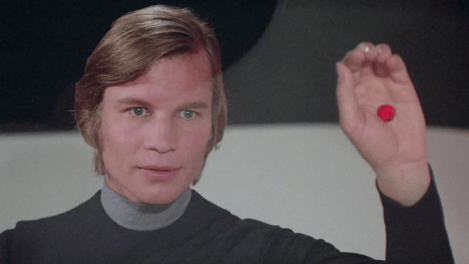
How Respeecher Restored Michael York’s Voice for an Inspirational Healthcare Initiative
Limited only by one’s imagination, creative partners are achieving breakthroughs with voice cloning technology across various fields, including entertainment, education, and healthcare.
Introduction
Michael York’s illustrious career extends over 50 years in film, theatre, radio plays, and more recently in voiceover narration for audiobooks, documentaries, and animation.
York’s grace, charm, and wit are well-remembered in such classic films as Cabaret, Logan’s Run, The Island of Dr. Moreau, and Austin Powers.
We had the honour of helping to deage York's voice for a meaningful healthcare project - so it would still render his unique vocal quality, signature tone, and cadence.
|
|
Numbers
|
2 months to deliver the project |
60 minutes of source training audio used |
1 minute of audio content created |
Why did York turn to voice cloning?
About 10 years ago, York’s health began to suffer from bone marrow cancer and an under-diagnosed condition called amyloidosis. This rare disease represents one class in a growing list of protein misfolding disorders. It’s a similar kind of illness which accounts for other commonly known degenerative conditions like Alzheimer’s and Parkinson’s disease.
As a result of misfolded proteins accumulating in the body, different organs can be affected with life-threatening consequences. In York’s case, he was fortunately able to receive expert treatment and keep his health condition in check.
One of the common symptoms of amyloidosis, though, is swelling of the tongue, which makes it more difficult to speak clearly. York said in an interview at the time: “I lost my voice completely. Which, for an actor, is a bit alarming. Now it’s sort of back.”
With his health recovering, York offered his vocal talent for a nonprofit educational initiative to promote awareness of amyloidosis. A short animated film was produced to help physicians, medical students, patients, and their support network to better understand and care for the insidious disease.
The project has since been of wide-reaching service among conferences, universities, clinics, meetings, and communities worldwide. Within the last year, because medicine and science are continually improving, it became necessary to update the animated film with new dialogue.
Initially, the nonprofit team hoped to record York’s additional voiceover to make the edits. But it quickly became clear that the new audio was not going to be an effective match with the original narration.
As well, there was no viable prospect of finding another actor who could impersonate York’s unique vocal quality, especially in the production time available. And, of course, existing text-to-speech software certainly would not be able to mimic York’s signature tone and cadence.
"When we were approached to update an educational video with new voiceover narration from legendary actor Michael York, our options were limited.
For almost a decade, Mr. York has been managing a health condition that has impaired his beautiful, mellifluous voice. Enter, stage right, the heroic efforts of Respeecher's amazing team!
It's been said, famously, that any sufficiently advanced technology will be indistinguishable from magic. Truly, given our creative constraints, Respeecher was uniquely able to pull a rabbit out of a hat.
Their source/target conversion of Mr. York's speaking voice demonstrably opens doors for the entertainment, education, and healthcare fields. Suffice it to say, it was an absolute honor to collaborate with Respeecher.
Their brilliant accomplishment and timely delivery have allowed our humble project to be a success, exceeding our expectations for what's even possible."
- Tim Jones, Emmy Award Winning Animation Producer
FAQ
Respeecher used voice cloning technology to recreate Michael York’s iconic voice for an educational initiative. By analyzing 60 minutes of training audio, the team synthesized York's signature tone, cadence, and vocal quality, enabling him to contribute to an animated film promoting amyloidosis awareness.
Voice cloning technology uses AI-powered speech synthesis to replicate a person's voice. It works by analyzing high-quality recordings of the target voice, capturing vocal nuances like tone and cadence, and then recreating speech that is nearly indistinguishable from the original voice.
The main challenge was matching the new voiceover to York’s original narration despite his health-related voice changes. Respeecher voice synthesis technology overcame this by precisely capturing and synthesizing York’s unique vocal qualities, despite his voice being raspy from amyloidosis.
AI-powered voice synthesis supports healthcare initiatives by providing a means to restore or replicate voices for patients affected by diseases like amyloidosis. This technology allows to create realistic voiceovers for educational materials, raising awareness and aiding understanding of rare conditions.
By using voice cloning technology the project allowed Michael York to contribute to a meaningful initiative despite his health condition. Respeecher’s voice synthesis not only enabled the creation of new personalized voiceovers, but also raised rare disease awareness through voice technology, making amyloidosis more understandable for people worldwide.
Synthetic media, such as AI-generated voices, can enhance rare disease awareness by enabling personalized, accurate voiceovers for educational materials. This technology makes it possible to deliver powerful messages with the voices of iconic figures, increasing engagement and understanding of rare diseases.
Glossary
Voice cloning technology
AI in healthcare
Rare disease awareness
Reviving Michael York's Voice for
Rare Disease Awareness through AI
Learn how Respeecher’s voice cloning technology enabled the preservation of Michael York’s iconic voice to support amyloidosis awareness, showcasing the power of AI in healthcare solutions.
Voice cloning technology is revolutionizing how we approach healthcare education, especially for rare diseases. In a remarkable collaboration, Michael York’s voice was brought back to life using Respeecher’s AI-powered voice synthesis, enhancing an important healthcare project that educates both patients and medical professionals about amyloidosis.
-
AI-Powered Healthcare Solutions
in Voice PreservationMichael York's voice was affected by a rare degenerative condition called amyloidosis, which impacts his ability to speak clearly. Using Respeecher's synthetic media technology in healthcare, York's iconic voice was restored, ensuring that his tone, cadence, and unique vocal qualities remained intact for a meaningful healthcare project. This breakthrough in voice preservation for degenerative conditions highlights the potential of AI in preserving important voices in healthcare.
-
Synthetic Media in Healthcare
for Rare Disease AwarenessRespeecher’s technology allowed for the creation of a personalized voice synthesis model that would resonate with audiences and serve as a key educational tool in the fight against amyloidosis. The animated film, produced with York’s voice, has been distributed globally to educate physicians, medical students, and patients, raising awareness about this life-threatening condition and other protein misfolding disorders.
-
AI in Patient Education and
Healthcare Content UpdatesWhen new content was required for the healthcare project, Respeecher’s AI-powered solution made it possible to seamlessly update the educational film with new dialogue, matching York’s voice despite his health challenges. This AI-driven innovation ensures that important educational content remains up-to-date, personalized, and consistent, with high-quality voice synthesis that reflects the original narration.
-
Future of Personalized Voice Synthesis
in HealthcareThe use of voice cloning technology in healthcare is opening new doors for patient education and rare disease awareness. As synthetic media in healthcare continues to evolve, tools like Respeecher’s voice synthesis will play a crucial role in updating educational content and preserving the unique voices of individuals impacted by degenerative conditions, ensuring that their messages and legacies live on.








